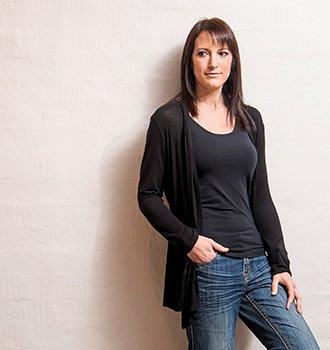Latest News Archive
Please select Category, Year, and then Month to display items
31 January 2018
Photo FNB Varsity Cup
 Lubabalo Dobela, Shimlas flyhalf (with the ball), played a key role in the Shimlas’ win over Tuks in the first round of the 2018 Varsity Cup.
Lubabalo Dobela, Shimlas flyhalf (with the ball), played a key role in the Shimlas’ win over Tuks in the first round of the 2018 Varsity Cup.
The Shimlas made a huge statement in their opening match of the 2018 Varsity Cup when they defeated last year’s champions at the Tuks Rugby Stadium in Pretoria.
The Free State students won the encounter against Tuks by 19-17 on Monday.
Tuks, who beat Shimlas twice last year, first in the group stage by 65-19, and then by 28-21 in the semifinals, were regarded as the hot favourites. The match was played in wet conditions which many thought would suit the home team better.
Determination carries team to win
But a young and inexperienced Shimlas team with 11 players making their debut in the competition proved that big hearts and guts count for just as much. It was only their third win in Pretoria in the 11th year of the competition and their second victory over Tuks since 2012.
As expected, both teams tightened up their approach. Shimlas struck back from a 0-5 deficit soon after the first strategy break as big and speedy wing Francois Agenbag stormed down the touchline to score a seven-point try. Flyhalf Lubabalo Dobela was on hand to convert and hand his team a 9-5 lead at the break.
Flyhalf stars in debut
The Shimlas extended their lead within five minutes of the restart as flank Benji Janse van Vuuren crashed over in the corner for a converted try. Dobela, one of the debutants who was named Player that Rocks (Player of the Match), controlled the match like a seasoned veteran. Apart from two difficult conversions from the touchline, he also slotted a penalty goal.
#Women'sMonth: Lack of HIV education still affects children
2017-08-17

Dr Nickie Goedhals, Senior Lecturer and Pathologist
in Medical Microbiology and Virology at the UFS.
Photo: Sonia Small
“Despite all the advances in the management and prevention of HIV, children still become infected every day, often due to lack of education and access to health care.” This is according to Dr Nickie Goedhals, Senior Lecturer and Pathologist in Medical Microbiology and Virology at the University of the Free State (UFS).
Study published in UK medical Journal
A case study she was part of and published in the UK medical journal The Lancet in 2012, demonstrates the transmission of HIV to a child through surrogate breastfeeding. This study is one of the many highlights in the young researcher’s career. She received her first rating from the National Research Foundation (NRF) in 2017 for the work she has done in Medical Virology over the past eight years.
According to the above-mentioned study, only about 1% of infants in South Africa are being breastfed by a surrogate. However, results from a study in the Free State showed that shared breastfeeding by a non-biological caregiver was the most important factor associated with HIV infection in discordant mother-child pairs. Therefore, continued education about the risk of HIV transmission is needed.
Dr Goedhals is also continuing with research on HIV by looking at HIV drug resistance. She is in the process of starting new projects focusing on HIV infection and drug resistance in infants.
PSP helped with NRF-rating
She says, although her NRF Y2-rating is the starting point of a research career, it shows that she is heading in the right direction, and it “gives access to research funds through the NRF for future projects.” Other important research she conducted was on Crimean-Congo haemorrhagic fever – the study for her PhD.
The Prestige Scholars Programme (PSP) at the UFS is the reason that she applied for the rating. “With all the service delivery, teaching, and administrative responsibilities of academic medicine, it is easy to lose focus. The PSP has really helped to create a focused and stimulating environment for research.” According to her, the PSP also provides access to a network of peers and senior staff at the UFS, as well as exposure to national and international experts.